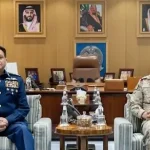
WASHINGTON: When the US led by President Richard Nixon and his foreign policy major domo Henry Kissinger cut a deal with communist China using Pakistan as a conduit in 1970, India was left out of the loop in a detente that changed the geopolitical dynamics of the region. Some four decades later, India is front and center in the American reconciliation with Iran, an event that when fully realized is likely to bring about an even greater seismic shift in Asia.
New Delhi may not have directly played errand boy or secret channel in the latest diplomatic upheaval that Pakistan’s Yahya Khan played in 1970. But almost every interlocutor who worked on the US-Iran agreement has an India connection — from William Burns, the deputy secretary of state who initiated and led the secret talks (he also wrapped up the US-India nuclear deal) to Puneet Talwar, the White House national security council staffer who did the grunt work for the agreement, to Thomas Pickering and Frank Wisner, both former US ambassadors to New Delhi, who opened the back channel with Teheran going back to the Bush administration.
More important than the personnel involved, however, the reconciliation carries multiple benefits for India, which has the second largest Shia Muslim population in the world after Iran. In fact, Prime Minister Manmohan Singh and Indian officials has often pointed this out during discussions with US officials whenever the subject of Washington’s difficult relationship with Teheran came up, suggesting that a reconciliation would redound to the benefit of all sides — from making US draw down from Afghanistan smoother to relieving India, which has close civilizational ties with the Persian power, from suffocating pressure on the energy front.
The US-Iran deal, which is currently of an interim nature with much more groundwork to be done before it is set in stone, has other profound consequences for India and the region. For one, its extricates Washington from the Sunni stranglehold that had cast the US as an unremitting ally of Sunni-dominated countries such as Saudi Arabia, Pakistan, and Egypt against mostly Shia-dominated Iran, Iraq, and Syria. India, which has about a 70:30 Sunni-Shia mix, has an exemplary record of intracommunal harmony, and there were lurking fears that this might be disrupted if the Sunni-Shia conflict in the Muslim world expanded eastward.
Nuclear weaponization
On the nuclear front too, US exceptionalism is being applied to two countries with civilizational underpinnings (India and Iran) vis-a-vis their artificially created rivals (Saudi Arabia and Pakistan). Although the US-Iran deal precludes Teheran having nuclear weapons, and is in fact designed to avert its nuclear weaponization (unlike in the case of India where Washington implicitly recognized India’s right to retain its nuclear weapons), the agreement is seen as being as bold a move by the Obama administration as the Bush administration’s nuclear deal with India.
The nuts and bolts of this agreement, which still has many missing parts and is clearly a work in progress, was put together by Puneet Talwar, an Indian-American White House staffer whose formal designation is special assistant to the president and national security council senior director for Iran, Iraq, and the Gulf states. A long-time Washington DCpolitical wonk, Talwar was a senior staffer on the Senate foreign relations committee, chaired by then-senator Joe Biden, with whom he came to the NSC when Biden became vice-president.
Even as a Senate staffer, Talwar was among the few Washington pols (former US envoys to India Frank Wisner and Thomas Pickering were two others) who kept open back channel contacts with Iranian officials during the Bush era, when the US capital was a war-mongering haven for neo-cons in a town where the Israeli lobby and the House of Saud had combined to successfully put Teheran in the doghouse. When President Obama came to office in 2009 determined to chart a different course with Iran and initiated the first secret outreach, Talwar was a natural choice to continue the back channel grunt work — this time with official White House imprimatur.
Source: TOI









Bullshit from TOI. These shameless baboons take credit where no credit is due.